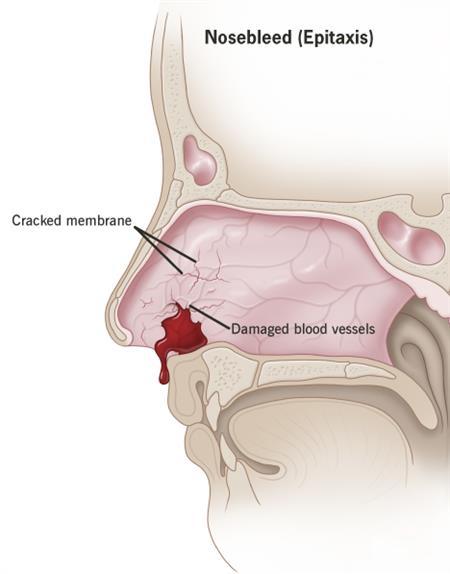Nasal Bleeding
Causes
- picking your nose.
- blowing your nose very hard.
- a minor injury to your nose.
- changes in humidity or temperature causing the inside of the nose to become dry and cracked.
Symptoms
- bleeding from either or both nostrils.
- a sensation of flowing liquid at the back of the throat.
- the urge to swallow frequently.
Precautions
- Sit up and lean forward. Keep the head up. …
- Gently blow your nose. This will clear any blood clots.
- Pinch the nose. Use the thumb and a finger to pinch both nostrils shut. …
- Prevent another nosebleed. Don’t pick or blow the nose. …
- If you have another nosebleed, try first-aid steps again.
Investigations
To diagnose epistaxis, routine laboratory testing is not required. If patients have symptoms or signs of a bleeding disorder and severe or recurrent epistaxis, a complete blood count (CBC), prothrombin time (PT), and partial thromboplastin time (PTT) should be done.
Treatment
- sit down at a table, lean forward and firmly pinch the soft part of your nose, just above your nostrils, for at least 10 to 15 minutes.
- lean forward and breathe through your mouth – spit out any blood that collects in your throat or mouth into a bowl; do not swallow any blood.
Complication
- Sinusitis.
- Septal hematoma/perforation.
- External nasal deformity.
- Mucosal pressure necrosis.
- Vasovagal episode.
- Balloon migration.
- Aspiration.

